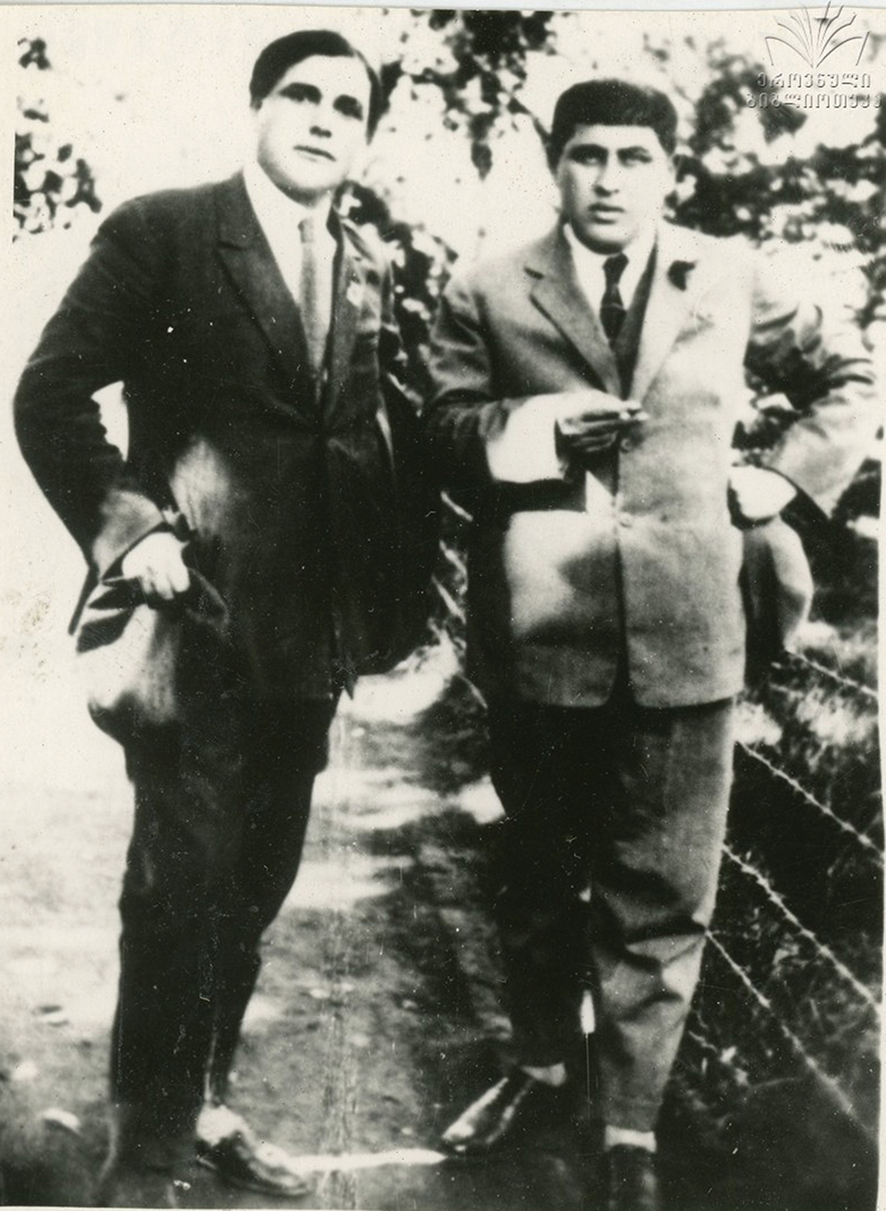Most readers probably know of the English translations of the great Galaktion Tabidze’s amazing poetry, but will likely have never seen a subtly impressive verse by Titsian Tabidze, another outstanding Georgian poet of almost Byron caliber. Said Titsian to his 16-year-old daughter, a brief while after the suicide of Paolo Iashvili, a Georgian poet and one of the leaders of the Georgian symbolist movement, who died in protest against the soviet repressions: “You will never be ashamed to mention my name, even if I am no longer around.”
Recent history has it that the then communist party’s high-ranking functionary Lavrenti Beria summoned the popular wordsmith to ask him to accuse Paolo of betraying the motherland as a foreign agent. Titsian refused to succumb to the fiendish request:
Beria: [But] there is so much left for you to do, a lot of poetry to create. Your entire life is ahead of you. There is no way to help Paolo; he is already dead, so why can’t you sign these few given words about him and get on with taking care of your own life?
Titsian: If I sign this, then nothing will make sense for me any longer, neither my poetry, nor my life.
That was the day when the Tabidze family’s months-long torment in anticipation of the poet’s arrest began. And eventually, right in the middle of one of their many sleepless nights, in October of the ill-remembered 1937, Titsian Tabidze was apprehended. The family held a years-long bitter belief that he would one day return home; almost 20 years waiting! All of them, the members of the bereft family of the innocent victim of those vicious times, wanted to believe that the genius would come back. But in vain. Twenty years on, the family was notified that Titsian Tabidze had been executed in December 1937, named a traitor and spy working in favor of the motherland’s enemies.

The proud Tabidze family is still around, having grown and multiplied, but having done so without that husband, father and beloved grandpa, who disappeared for no real reason, not to return to them ever after. Before his arrest, Titsian said to his wife: “Please don’t feel hurt if my friends disappear on you, and never judge them if I am arrested. They will definitely be ready to help you out when necessary, but they will be scared to do so. There are no heroes. They might be afraid of their own arrest and torture in jail.”
One of the family members of unforgettable Titsian Tabidze would remember that they came at three in the morning to take him. “That’s exactly the time when the clock stopped and never started again, although it is still sitting among all our family paraphernalia, marking the ever-present painful and gloomy reminiscence of that devastating moment in our lives.”
Indeed, the great poet’s mother’s hair went grey overnight. Life changed forever for the worse! Happiness as such might be buried forever, but hope dies last, as the saying goes. Indeed, all of them wanted to believe that the head of their family would not have died so simply; that something unknown would have kept him safe. But alas! When the news of his tragic demise arrived, they wanted to cling tightly to that ephemeral hope that God would help. But the power that disposed instead of Divinity always laughs at what Man supposes.
Time passes and we all have a proclivity to forget stories of this kind, but they did actually happen. The Georgian poetic thought and our people, the carrier of that precious thought, lost Titsian Tabidze when he was only forty-two. The priceless and irreplaceable treasury of wisdom and verse left together with him, but he is still here with us in what remains of the verses he wrote, striking those humanely elevated ideals into our hearts and minds.
Blog by Nugzar B. Ruhadze














